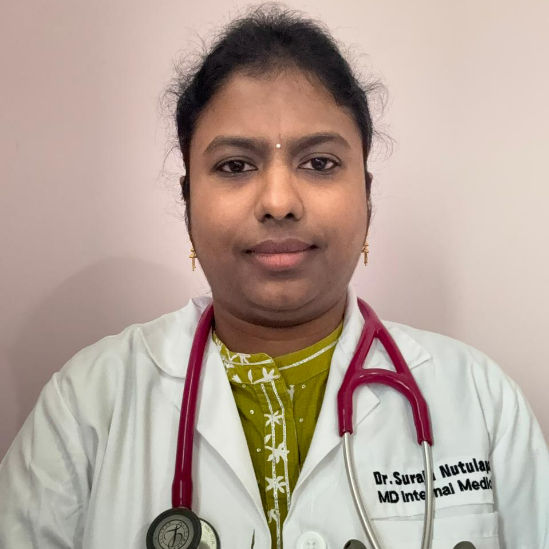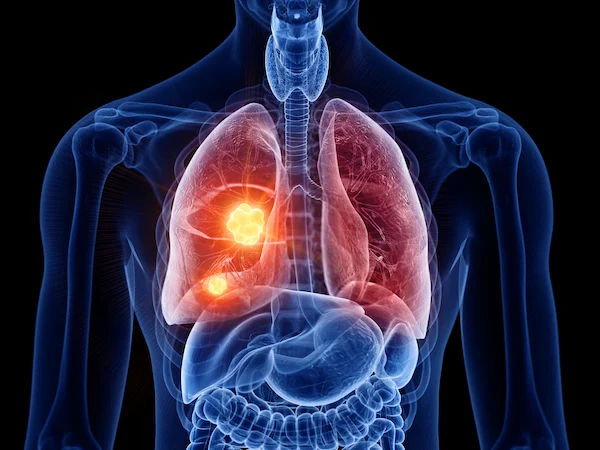Chest Cancer Symptoms in Men
Learn the early signs of chest cancer in men, including persistent cough, chest pain, and weight loss. Understand risk factors and when to seek medical help.

Written by Dr. Dhankecha Mayank Dineshbhai
Reviewed by Dr. J T Hema Pratima MBBS
Last updated on 28th Jul, 2025

Introduction
Chest cancer, which includes lung cancer and other malignancies affecting the chest area, can be a serious health concern for men. Recognising the early symptoms is crucial for timely diagnosis and treatment. This article will help you understand the common signs, risk factors, and steps you can take to protect your health.
What is Chest Cancer?
Chest cancer refers to cancers that develop in the chest region, primarily the lungs (lung cancer) but also the oesophagus, thymus, or chest wall. Lung cancer is the most common type and is often linked to smoking, though non-smokers can also develop it.
Common Symptoms of Chest Cancer in Men
Early detection improves treatment outcomes, so knowing the warning signs is essential. Here are some symptoms to watch for:
1. Persistent Cough
- A cough that doesn’t go away or worsens over time.
- Coughing up blood or rust-colored mucus.
2. Shortness of Breath
- Feeling breathless even with mild activity.
- Wheezing or a hoarse voice.
3. Chest Pain
- Pain that worsens with deep breathing, coughing, or laughing.
- A dull ache or sharp discomfort in the chest, back, or shoulders.
4. Unexplained Weight Loss
- Losing weight without changes in diet or exercise.
5. Fatigue and Weakness
- Feeling unusually tired despite adequate rest.
6. Recurrent Infections
- Frequent bronchitis or pneumonia.
7. Swelling in the Neck or Face
- Caused by tumours pressing on blood vessels.
If you experience any of these symptoms for more than a few weeks, consult a doctor.
What Causes Chest Cancer in Men?
Several factors increase the risk of chest cancer:
- Smoking (Tobacco Use): The leading cause of lung cancer.
- Secondhand Smoke: Even non-smokers exposed to smoke are at risk.
- Radon Exposure: A radioactive gas found in some homes.
- Asbestos & Chemical Exposure: Common in certain workplaces.
- Family History: Genetic predisposition may play a role.
- Air Pollution: Long-term exposure can contribute.
Consult a Top Physician For More Health Benefits
How is Chest Cancer Diagnosed?
If symptoms suggest chest cancer, doctors may recommend:
- Imaging Tests: X-rays, CT scans, or MRIs to detect tumors.
- Biopsy: A small tissue sample is examined for cancer cells.
- Bronchoscopy: A thin tube with a camera checks the airways.
- Blood Tests: To assess overall health and detect markers.
Early diagnosis improves treatment success, so don’t delay medical advice.
Tips for Prevention & Early Detection
While not all chest cancers are preventable, these steps can lower risk:
1. Quit Smoking
- The best way to reduce lung cancer risk. Seek help if needed.
2. Avoid Secondhand Smoke
- Stay away from environments where smoking is common.
3. Test for Radon
- Check your home for radon levels, especially in basements.
4. Protect Against Workplace Hazards
- Wear protective gear if exposed to chemicals or asbestos.
5. Eat a Healthy Diet
- Include fruits, vegetables, and antioxidants to boost immunity.
6. Exercise Regularly
- Physical activity supports lung health.
7. Regular Health Check-ups
- Especially important if you have a family history of cancer.
When to See a Doctor?
If you notice persistent symptoms like:
- A cough that doesn’t go away
- Chest pain
- Unexplained weight loss
- Difficulty breathing
Don’t ignore them—early medical advice can make a difference.
How Apollo 24|7 Can Help
If you're concerned about chest cancer symptoms, Apollo 24|7 offers:
- Expert Consultations: Speak to oncologists online.
- Diagnostic Tests: Book scans or lab tests easily.
- Personalised Care Plans: Get guidance on prevention and treatment.
Early detection saves lives. Book a consultation today and take charge of your health.
Conclusion
Chest cancer is a serious condition, but awareness and early action can improve outcomes. If you or a loved one experiences concerning symptoms, seek medical advice promptly. Small lifestyle changes and regular check-ups can go a long way in protecting your health.
Stay informed, stay proactive, and prioritise your well-being!
[Consult a doctor now on Apollo 24|7], because your health matters.
Consult a Top Physician For More Health Benefits
Consult a Top Physician For More Health Benefits

Dr. Syed Ismail Ali
General Practitioner
7 Years • MBBS
Hyderabad
Apollo 24|7 Clinic, Hyderabad

Dr D M Karthik
General Practitioner
4 Years • MBBS, Fellowship in Diabetes Mellitus, Advance certificate in Diabetes Mellitus, Derma Nutrition Certification
Visakhapatnam
Apollo 24|7 Clinic - Andhra Pradesh, Visakhapatnam

Dr. Mohammed Kamran
General Practitioner
5 Years • MBBS, FIDM
Nashik
Apollo 24|7 Clinic - Maharashtra, Nashik

Dr. D Bhanu Prakash
General Practitioner
10 Years • MBBS, AFIH, Advanced certificate in critical care medicine, Fellowship in critical care medicine
Hyderabad
Apollo 24|7 Clinic, Hyderabad

Dr. Suraja Nutulapati
General Physician/ Internal Medicine Specialist
10 Years • MBBS, MD (Internal Medicine)
Hyderabad
Apollo 24|7 Clinic, Hyderabad
(850+ Patients)
Consult a Top Physician For More Health Benefits

Dr. Syed Ismail Ali
General Practitioner
7 Years • MBBS
Hyderabad
Apollo 24|7 Clinic, Hyderabad

Dr D M Karthik
General Practitioner
4 Years • MBBS, Fellowship in Diabetes Mellitus, Advance certificate in Diabetes Mellitus, Derma Nutrition Certification
Visakhapatnam
Apollo 24|7 Clinic - Andhra Pradesh, Visakhapatnam

Dr. Mohammed Kamran
General Practitioner
5 Years • MBBS, FIDM
Nashik
Apollo 24|7 Clinic - Maharashtra, Nashik

Dr. D Bhanu Prakash
General Practitioner
10 Years • MBBS, AFIH, Advanced certificate in critical care medicine, Fellowship in critical care medicine
Hyderabad
Apollo 24|7 Clinic, Hyderabad

Dr. Suraja Nutulapati
General Physician/ Internal Medicine Specialist
10 Years • MBBS, MD (Internal Medicine)
Hyderabad
Apollo 24|7 Clinic, Hyderabad
(850+ Patients)

